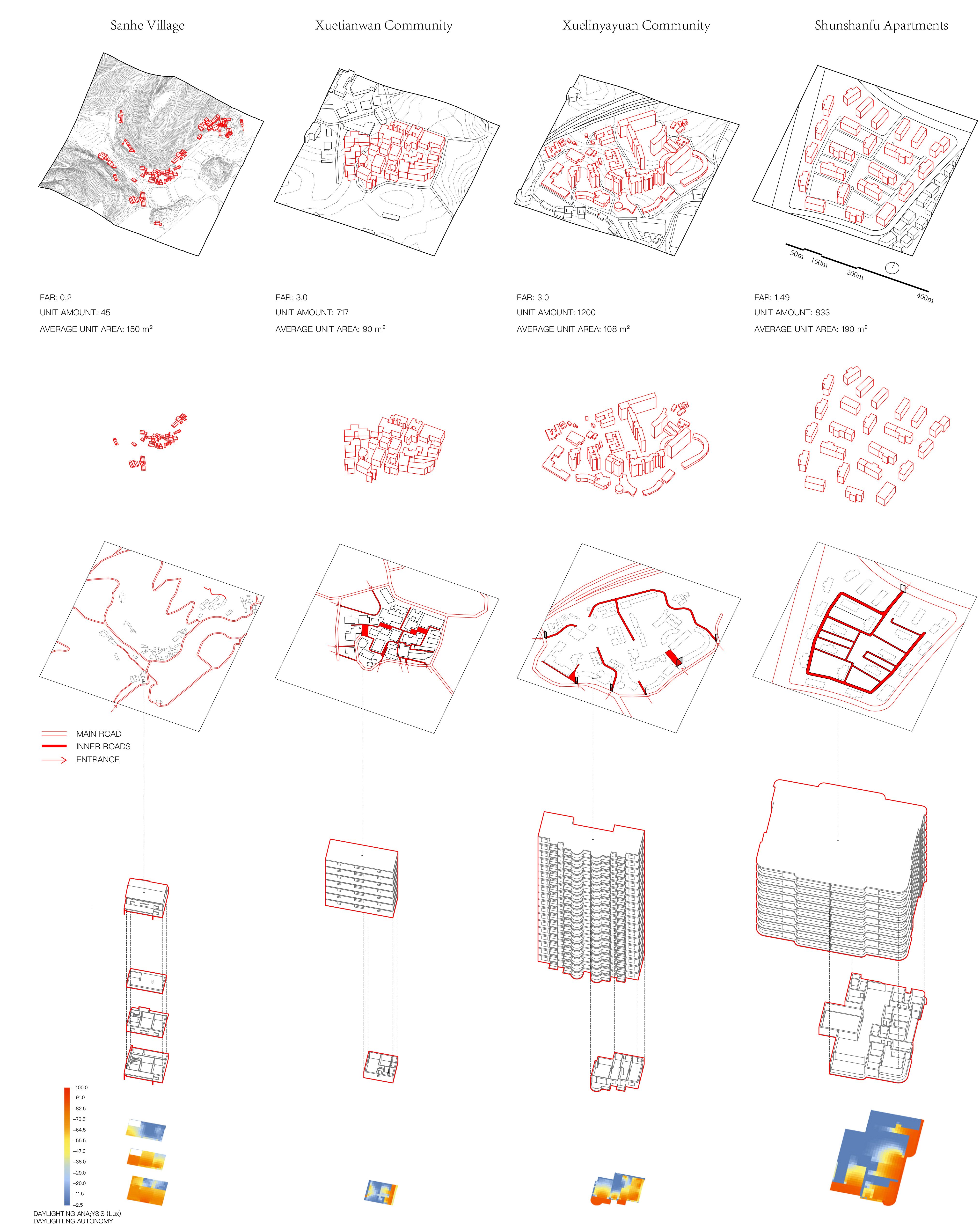← Back to Research
Learning From Chongqing
2020 Mapping Housing Transtions
Project leadership: Leslie Lok (PI), Timur Dogan, Peng Liu, Jamie Vanucchi (Co-PIs)
Design and research: Jiaying Wei, Jiayi Xing, Jingxin Yang
Learning from Chongqing, formulates an interdisciplinary research proposal that was awarded the Cornell China Center Development Grant in 2019. Researchers across disciplines from architecture, landscape architecture, urban planning, and real estate at Cornell University and Chongqing University collaborated through a workshop in the summer of 2019. The workshop drew trans-disciplinary insights from three distinct housing contexts – a rural village, a real estate development in the urban fringe, and an urban mid-rise housing community. This project seeks to rethink urban-rural development in China by using Chongqing as a valuable case study to examine and to develop new sustainable urbanization models that address ecological, residential, infrastructural, and socioeconomic considerations. Housing is a major element of the living environment and driver for urbanization in China. With the rural and urban fringe emerge as the predominant context for expansion, residential land accounted for the largest proportion of Chongqing’s new urban built areas in 2016. The research investigates the interdependency between housing development in the rural-urban transformation to tackle challenges of urbanization in mountainous cities.
Learning from Chongqing was awarded the Cornell China Center Development Grant in 2019.
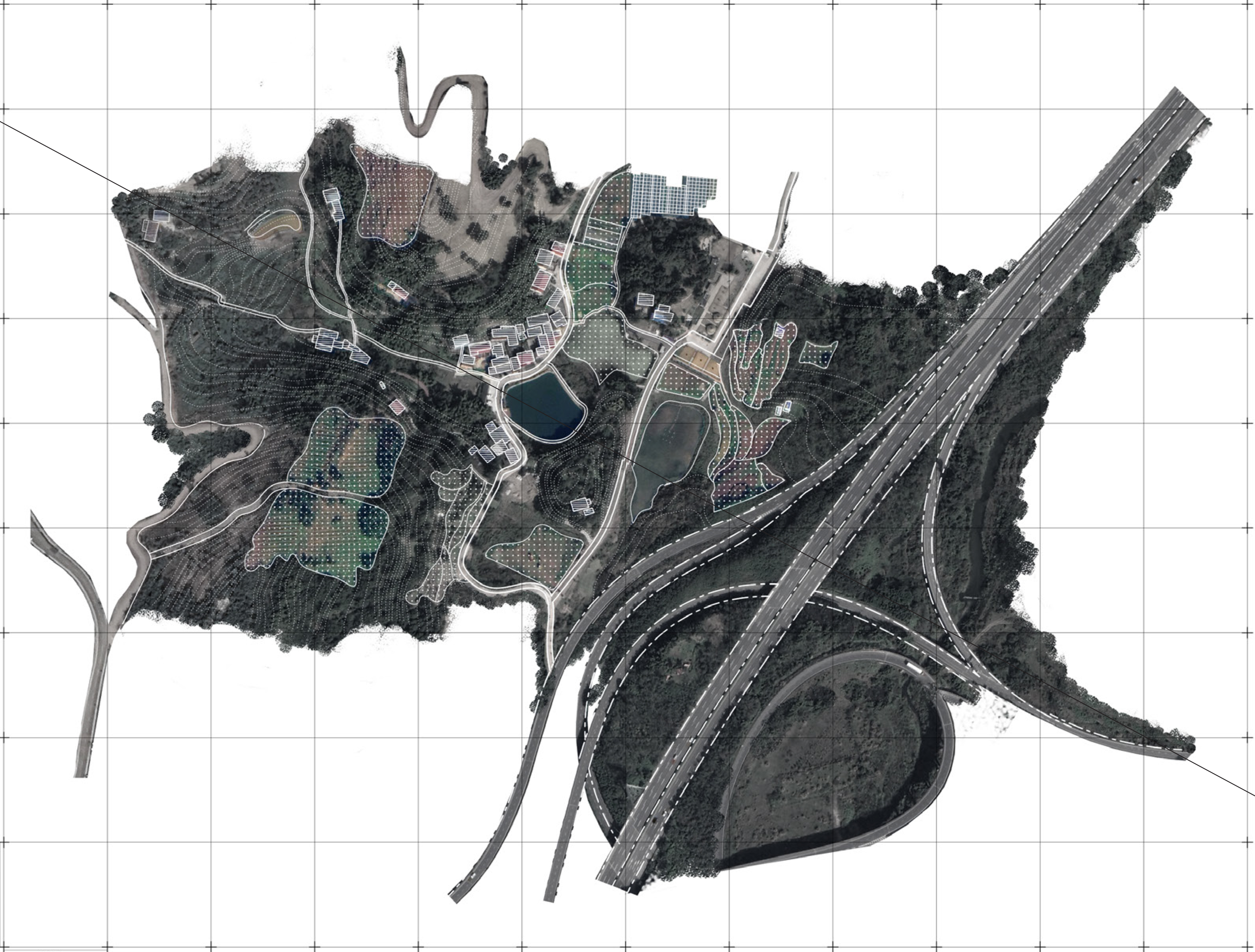
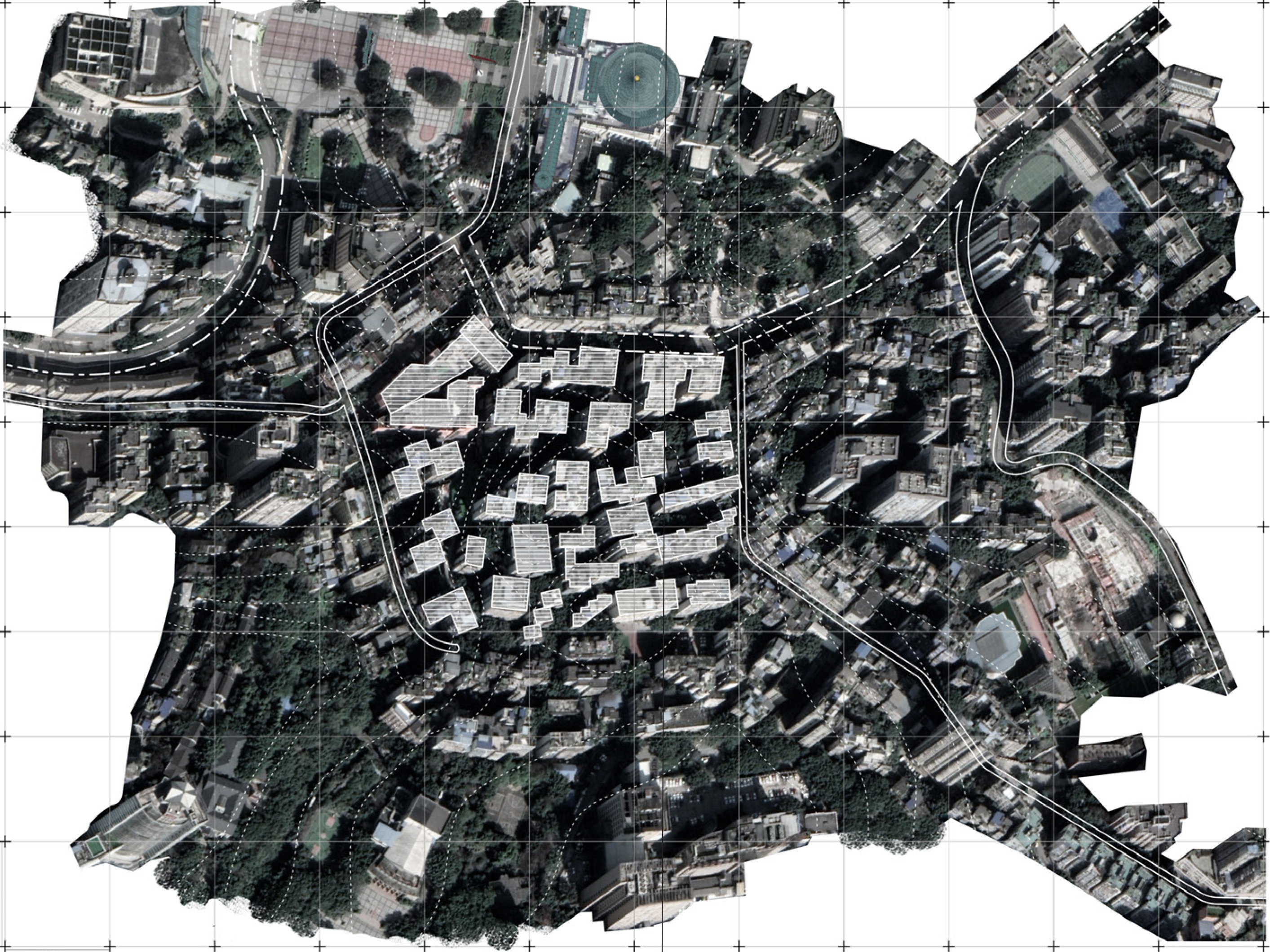
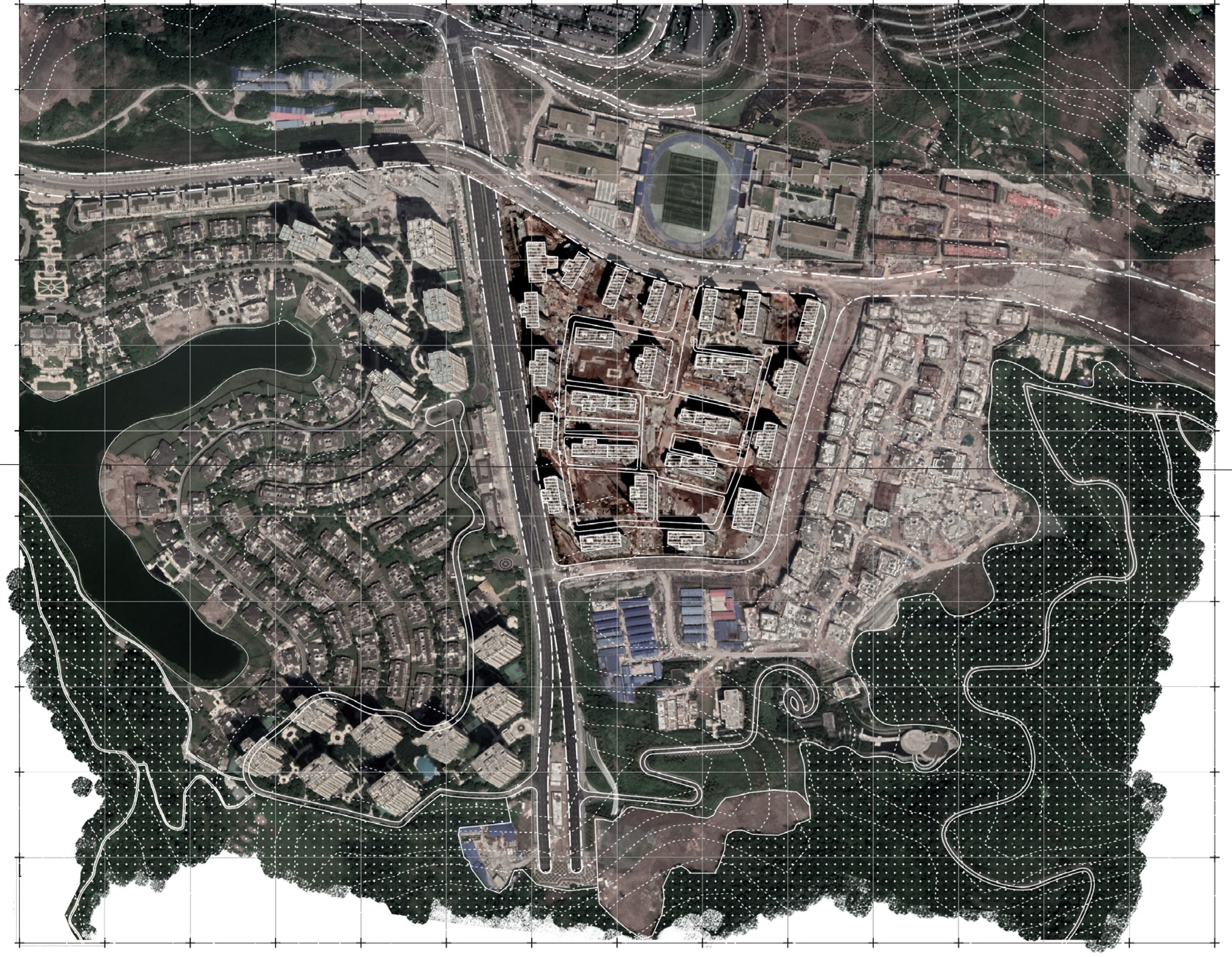



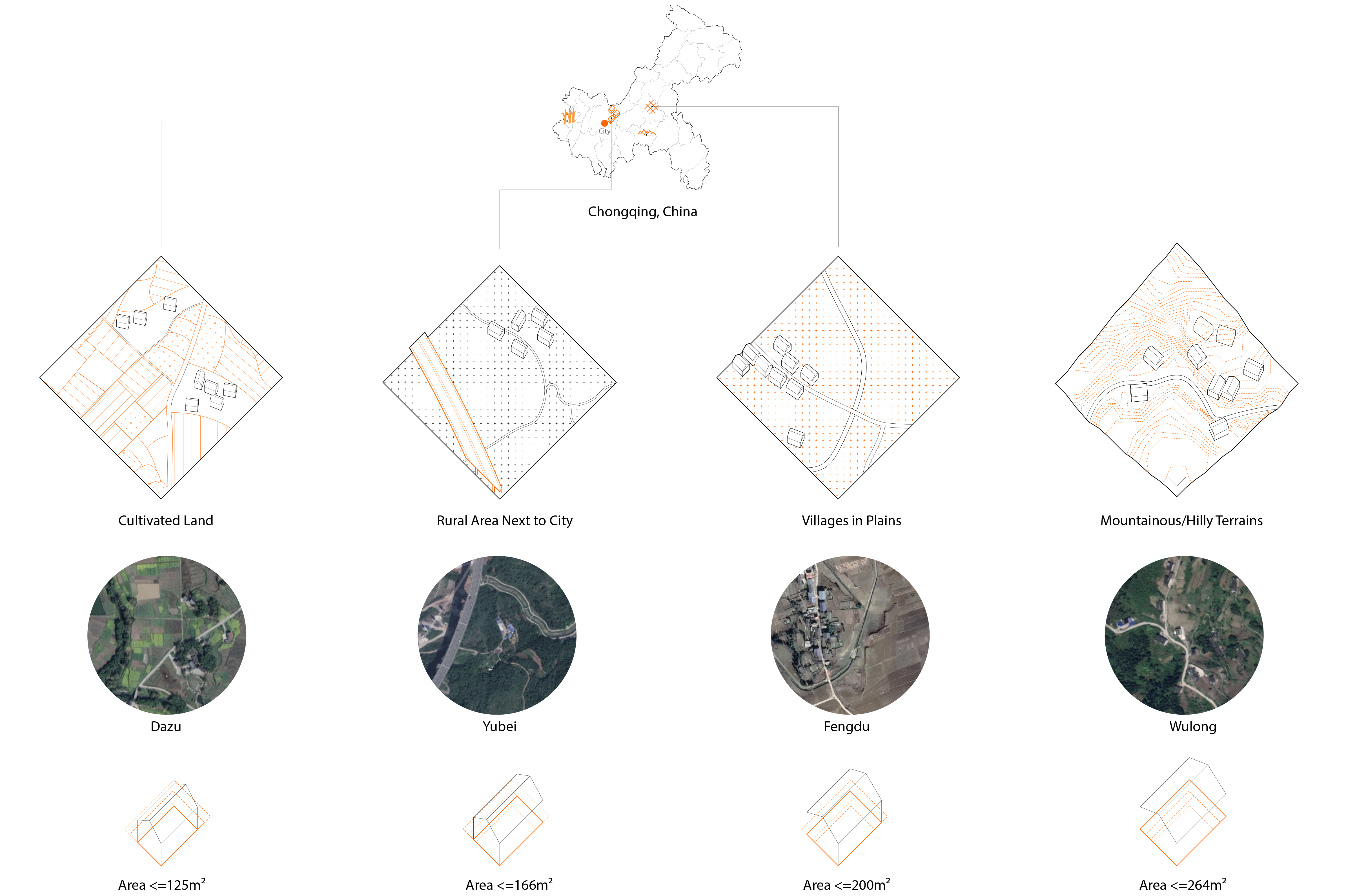
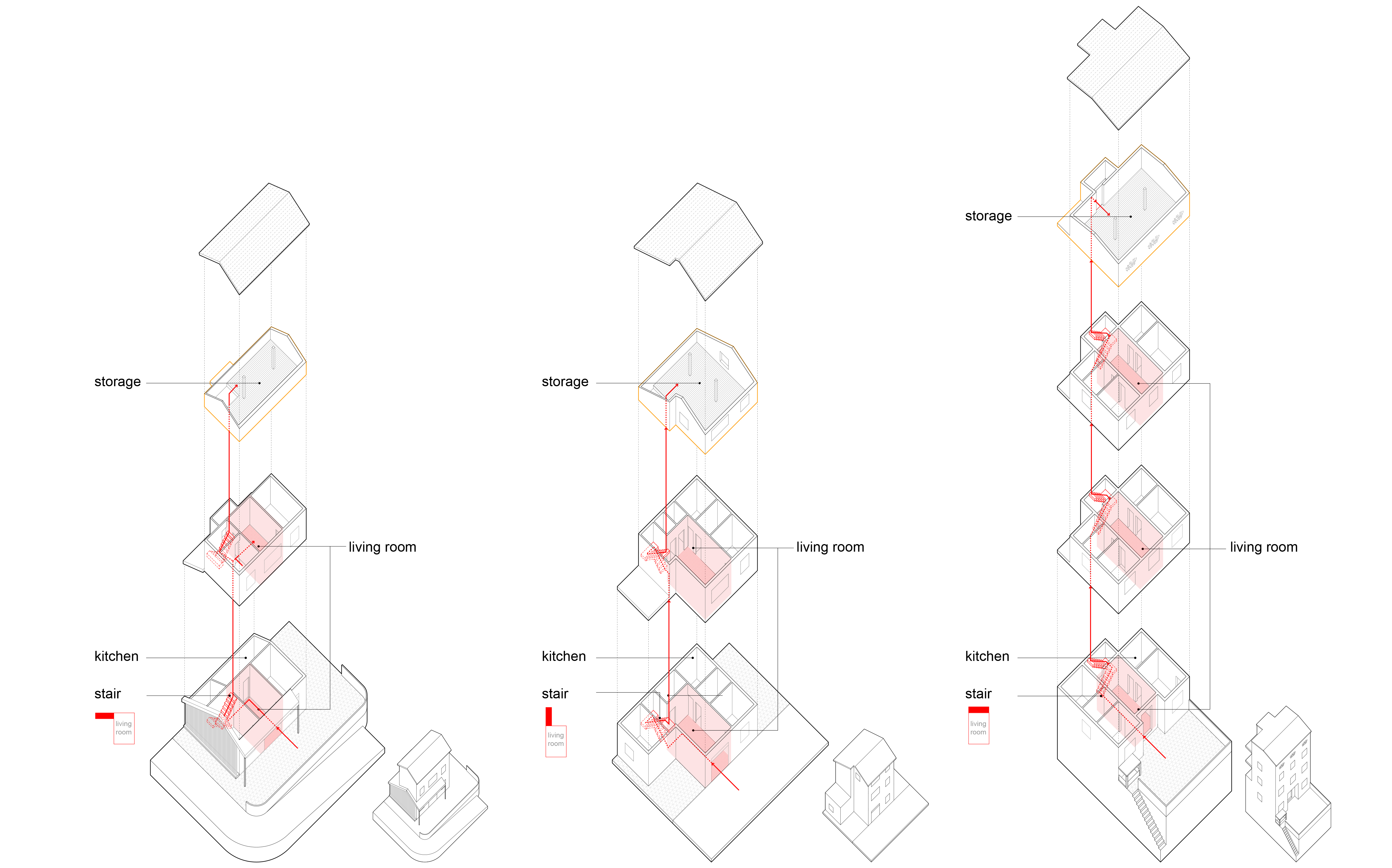
Courtyard Typology, Sanhe Village

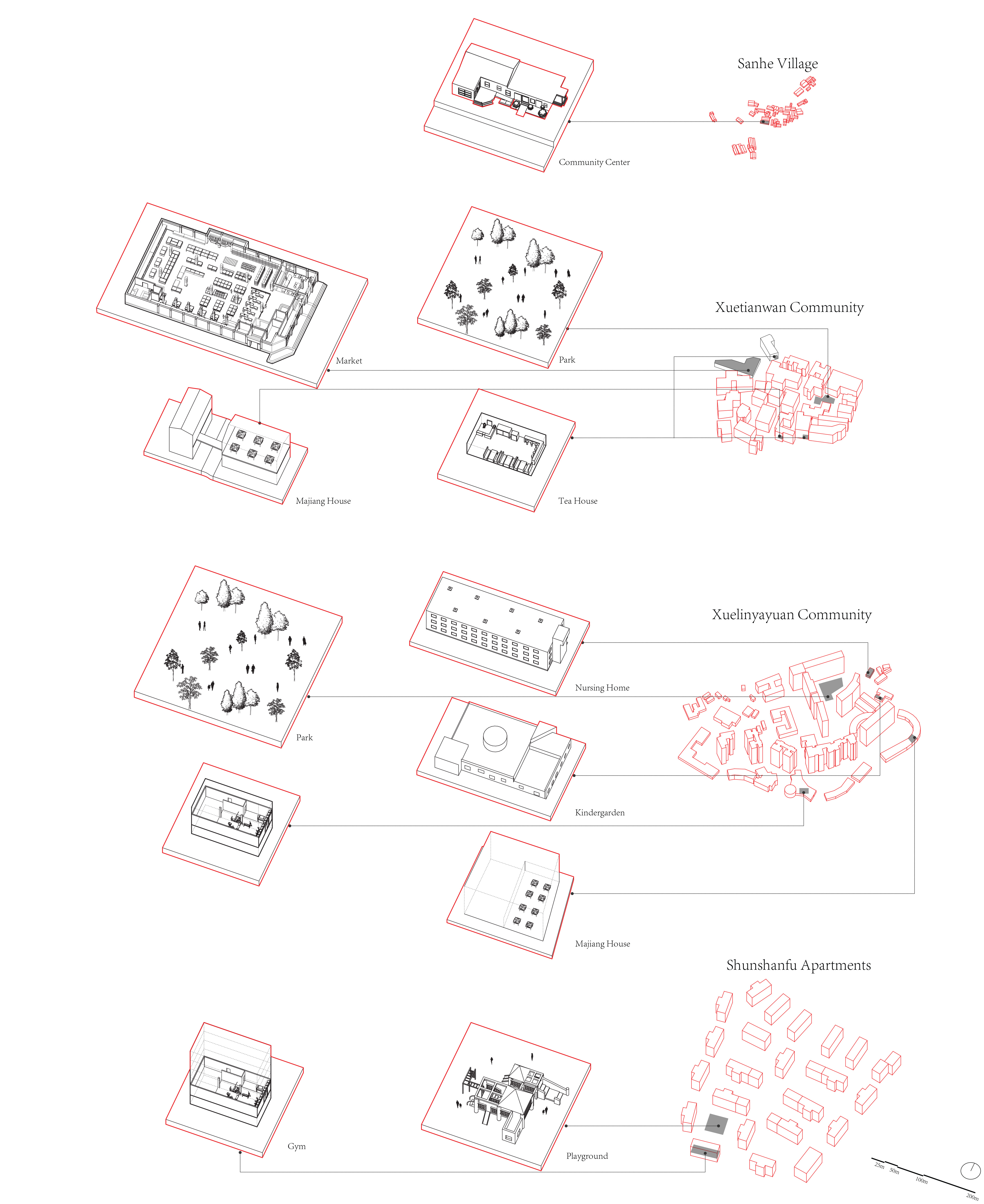
Community Center Typology, Sanhe Village, Xuetianwan, Xuelin Yuyuan, Shunshanfu
